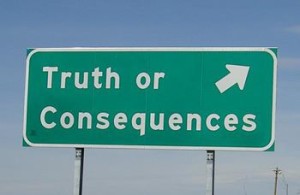 The terror in Paris settled quickly but will flare again. Some people hate freedom and democracy. Some people believe they have a duty to punish those who say things they do not like.
The terror in Paris settled quickly but will flare again. Some people hate freedom and democracy. Some people believe they have a duty to punish those who say things they do not like.
Just as talk shows ran out of content, another hostage crisis erupted. Pundits comment and debate the slaughter. One theme focuses on freedom and the limits of expression in a free society.
Hospital workers also wrestle with free speech. What can they say without getting into trouble? Do they have a duty to report? Will they be protected if they hold an unpopular opinion?
In a time of universal deceit, telling the truth is a revolutionary act. George Orwell
Free Speech in Hospitals
In healthcare, ‘speaking up’ usually focuses on whistleblowing:
- Medical Whistle-blower Protection Lacking CMAJ
- Doctors Fear Losing Hospital Privileges for Speaking out
- Tar Sands Whistle-blower
- Dr. Olivieri
- MD Whistleblower canned in NHS
- Is Whistleblowing Worth It? Medical Economics
But can healthcare providers speak out on anything else? Should they?
Currying Favour with Politicians
Just after training, I wrote a letter to the editor about overcrowding in emergency departments. I asked the Minister of Health if he really knew what he was talking about. I invited him into our ED at “—Blank— Hospital” to see overcrowding for himself, to experience it firsthand.
My CEO blew up. He sicced the Chief of Staff on me. Then the President of the Medical Staff Association preached, “Never, ever, ever mention the name of the hospital in the media.”
My department chief said he agreed with my letter, thanked me for writing it and asked me to never do it again, ever.
Hospitals fight over one pot of tax dollars in Medicare. Thus, hospitals must never embarrass their political benefactors. Hospitals can lose project funding because one politician got their image tarnished. Image determines re-election, the most important political concern.
The public pays for hospital administrators to spend hours and hours in dozens of meetings worrying about “the media” or “the union bus getting parked outside” or a letter of complaint copied to the local MPP and hospital CEO. Dozens of meetings! In a way, administrators care about public image just as much as politicians.
Free Speech Fallacy
Those who know cannot speak.
Those at the coal face often know frontline problems better than CEOs, bureaucrats or journalists. But they cannot speak. If they do, they get in trouble, lose positions or promotions, and might get fired. Even worse, they might make work much harder for colleagues. Is this free speech?
Rules of “Free Speech”
Publish accolades and praise without fear. But if you have less than glowing comments, do not identify:
- your organization.
- an individual by name.
- specifics of a bad outcome you report.
Never comment on
- concerns about safety.
- decisions made by organizations you work for.
- details about religion, race, sex or any specific identifier even if central to an issue.
Some topics attract more pain and suffering than others. Avoid big labour, organizational movements and any hint of being politically incorrect. If you do, expect to be shouted down, punished and written off.
Is Free Speech in Hospitals Dead?
What if you’re an idealist? What if you can’t help but speak truth to power?
Go ahead; be an idealist. Talk about rates of this or that terrible thing; talk about ineffective efforts to improve X, Y or Z. (Yes, I’m too chicken to mention specifics!) Say it gently, kindly.
You might be in big trouble or out of work tomorrow. Another martyr for free speech.
photo credit: anonymousartofrevolution.com

A number of readers sent private comments by email. Thanks for reading! I appreciate your encouragement.
I completely understand that you’d prefer to keep your agreement with ‘free speech’ private.
Thanks again,
Shawn
Great piece, Shawn. I’d just add in the great irony in all of this: if the administrators spent a fraction of the time FIXING THE PROBLEMS that they do fretting over public perception, they would have no need to spend time fretting over public perception!
How often would a doctor or nurse “blow the whistle” on an administration that listens, supports, and works with them productively?
Health care leaders nowadays are preoccupied with papering over real problems, and burnishing their images like they were actors in a Hollywood movie or members of the U.S. Congress. The media is going to do what the media is going to do. Get to work on alleviating the substantive problems, earn some credibility among front line staff, and there’s really no story to tell.
Wise words, Frank, and well said too!
People complain no matter what leaders do. Leaders need to be sophisticated enough to see complaints at a meta level. Are the complaints about safety? Or are they about self actualization, being able to use all their skills and training, etc? Resisting innovation because we are scared of all complaints guarantees we do nothing.
Thanks so much for taking time to read and comment! I must return the favour with comments on your great blog! (Frank’s blog: http://drwarsh.blogspot.ca/ )
Cheers
Shawn